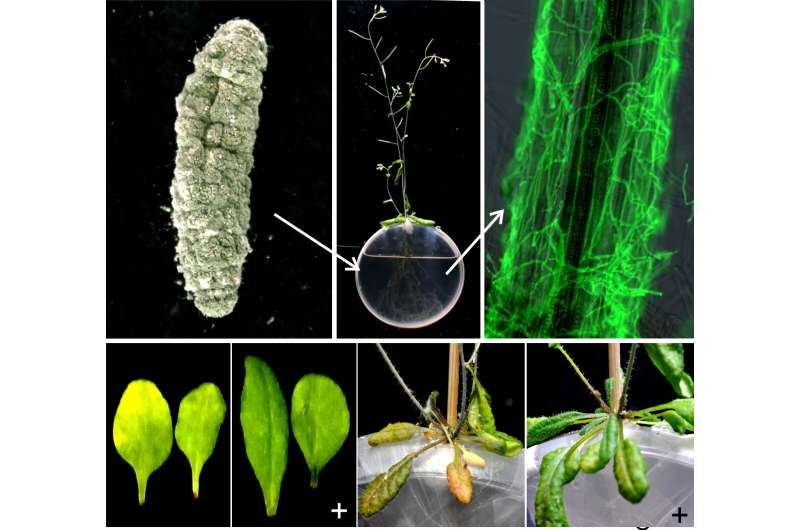Examining the promotion of Arabidopsis immune responses by a rhizosphere fungus

Plants can form diverse intimate relationships with beneficial mycorrhizal, endophytic and or rhizosphere fungi for nutrient trades. It is now known that plants can transfer carbon sources like fatty acids to fungi while the fungi mediate the supply of phosphate and/or nitrogen to plants. The benefits from fungi also include the promotion of plant growth and defenses against different biotic and abiotic stresses. However, the fungal promotion of plant immune responses is still mechanistically elusive.
Pipecolic acid (PIP), a product of lysine catabolism, can be produced by diverse organisms from bacteria to fungi and plants. Accrued evidence has shown that PIP and its derivative N-hydroxy pipecolic acid (NHP) are critical regulators of inducible plant immunity. In addition to being an endogenous mediator in plants, it has not been suspected before whether PIP can be traded across kingdoms.
Prof. Chengshu Wang and his colleagues from the Shanghai Institute of Plant Physiology and Ecology, Chinese Academy of Sciences, report that the PIP produced by a rhizosphere fungus Metarhizium robertsii could be uptaken by Arabidopsis thaliana to promote plant immune responses against the bacterial pathogen and aphid attacks. M. robertsii is an ascomycete entomopathogenic fungus that can also form endophytic or rhizosphere relationships with different plants.
They previously obtained a SwnA-overexpression (OE) mutant of M. robertsii that can produce a higher amount of PIP and its related secondary metabolite than the wild type (WT) strain. In this work, they established an elegant sterile-root hydroponic system for the gnotobiotic inoculation of Arabidopsis with the WT and OE strains.
They found that Metarhizium could colonize the rhizosphere of plant roots, and that PIP could be evident in the PIP-nonproducing ald1 plants after fungal inoculations. The PIP level of Col-0 plants could also be significantly increased after the inoculation of fungal OE strain. Nevertheless, NHP was significantly enhanced in Col-0 but not in ald1 after the inoculation of either strain. Thus, fungal PIP can be transferred into and/or converted to NHP in plants.
Similar to the addition of exogenous PIP, they found that fungal inoculations could promote the immune defenses of both Col-0 and ald1 but not fmo1 (being unable to produce NHP) of Arabidopsis against the infection of the bacterial pathogen Pseudomonas syringae pv. tomato (Pst). They also found that fungal inoculations could significantly boost the accumulation of phytoalexins in Arabidopsis, such as camalexin and 4-methylsulfinylbutyl glucosinolate.
This finding is supported from the previous reports that NHP can induce camalexin production in A. thaliana. They also found that fungal inoculations, especially the use of OE strain, could suppress the proliferation of green peach aphids on plants.
In addition to evidencing the previously-unsuspected PIP transfer from fungi to plants, the finding in this work suggests that the screening and use of the compatible PIP-high-producing microbes may benefit crop defenses against biotic challenges.
The findings are published in the journal Science China Life Sciences.
More information:
Feifei Luo et al, Promotion of Arabidopsis immune responses by a rhizosphere fungus via supply of pipecolic acid to plants and selective augment of phytoalexins, Science China Life Sciences (2022). DOI: 10.1007/s11427-022-2238-8
Citation:
Examining the promotion of Arabidopsis immune responses by a rhizosphere fungus (2022, December 6)
retrieved 6 December 2022
from https://phys.org/news/2022-12-arabidopsis-immune-responses-rhizosphere-fungus.html
This document is subject to copyright. Apart from any fair dealing for the purpose of private study or research, no
part may be reproduced without the written permission. The content is provided for information purposes only.
For all the latest Science News Click Here
For the latest news and updates, follow us on Google News.

